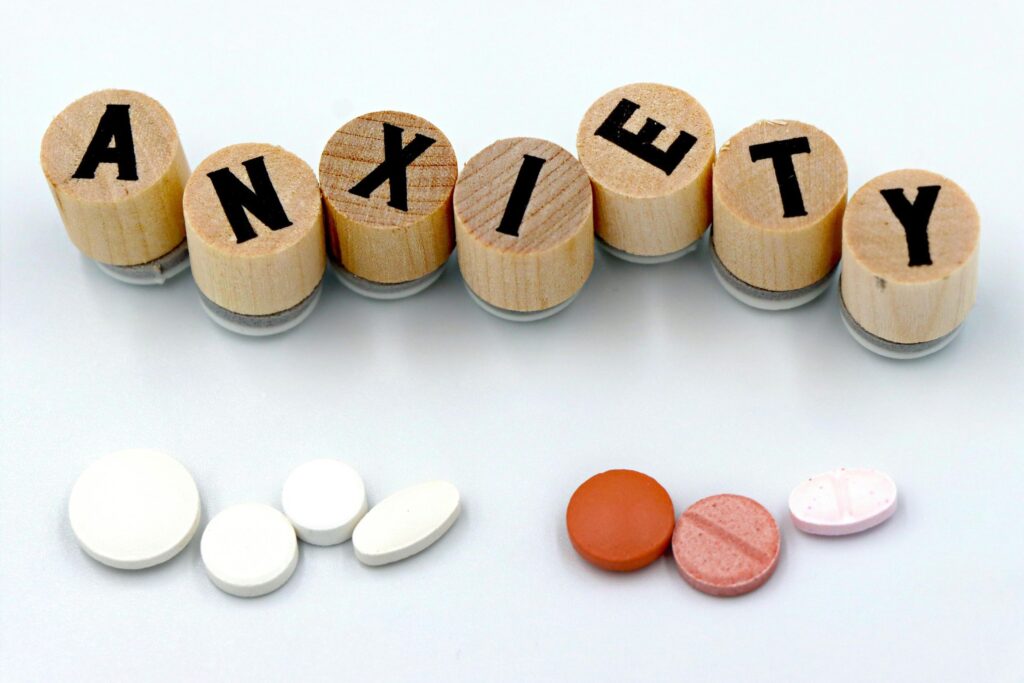Benzodiazepines are medications that millions of people rely on for relief from anxiety, insomnia, and seizures. When prescribed and used correctly, they can provide powerful short-term help. However, benzodiazepines also carry a significant risk of misuse and dependence. Over time, misuse can lead to serious physical, psychological, and social consequences. Families and individuals facing benzodiazepine misuse often feel confused, afraid, and unsure of what steps to take. Understanding the dangers, recognizing the warning signs, and learning about effective treatment options are critical for protecting health and supporting recovery.
What Are Benzodiazepines?
Benzodiazepines are a class of sedative medications that act on the central nervous system. Common examples include alprazolam, known by the brand name Xanax, diazepam, known as Valium, lorazepam, known as Ativan, and clonazepam, known as Klonopin. They work by enhancing the effects of gamma-aminobutyric acid, or GABA, the brain’s primary inhibitory neurotransmitter. This produces calming effects, reduces anxiety, relaxes muscles, and helps with sleep. Benzodiazepines are often prescribed for conditions such as generalized anxiety disorder, panic attacks, insomnia, seizures, and muscle spasms. In hospital settings, they may also be used to sedate patients before procedures.
Why Benzodiazepines Are Misused
Benzodiazepines are effective in the short term, but their calming and euphoric effects make them prone to misuse. People may misuse them to cope with stress, to enhance the effects of alcohol or opioids, or to come down from stimulants such as cocaine or methamphetamine. Some may take higher doses than prescribed, use them for longer than recommended, or obtain them illegally. Young people may misuse benzodiazepines recreationally, unaware of the risks. Because benzodiazepines are widely prescribed, they are also widely available, making diversion and misuse more likely.
The Dangers of Benzodiazepine Misuse
The dangers of benzodiazepine misuse are serious and often underestimated. High doses can cause extreme sedation, confusion, and impaired coordination, increasing the risk of accidents and injuries. When combined with other substances such as alcohol or opioids, benzodiazepines can suppress breathing and lead to fatal overdoses. Long-term misuse damages cognitive function, leading to memory problems, reduced attention, and emotional instability. Dependence develops quickly, meaning the brain and body come to rely on the drug to function normally. Withdrawal from benzodiazepines can be dangerous and even life-threatening, with symptoms such as seizures, hallucinations, and severe anxiety.
The Connection Between Benzodiazepines and the Overdose Crisis
Benzodiazepines play a significant role in the overdose crisis. Many overdose deaths involve combinations of opioids and benzodiazepines. The sedative effects of benzodiazepines compound the respiratory depression caused by opioids, greatly increasing the risk of death. Despite warnings, co-prescribing of benzodiazepines and opioids still occurs, and many people combine them intentionally for stronger effects. This dangerous mix has fueled thousands of overdose deaths each year. Families need to understand that even if someone is not misusing opioids, misuse of benzodiazepines alone carries overdose risks.
Signs of Benzodiazepine Misuse
Recognizing benzodiazepine misuse early can save lives. Signs may include drowsiness or excessive sleepiness, slurred speech, poor coordination, memory lapses, and changes in mood such as irritability or depression. Behavioral signs include taking higher doses than prescribed, requesting early refills, visiting multiple doctors, or using benzodiazepines without a prescription. Social signs may include withdrawing from relationships, neglecting responsibilities, or experiencing financial problems due to drug use. Families may notice secrecy, defensiveness, or denial when the topic of medication use is raised.
Short-Term Effects of Misuse
Short-term effects of benzodiazepine misuse include drowsiness, dizziness, blurred vision, slowed reaction time, confusion, and euphoria at high doses. These effects can impair driving and increase the risk of accidents. They also interfere with learning and memory, making school or work performance difficult.
Long-Term Effects of Misuse
Long-term misuse can lead to tolerance, meaning higher doses are needed for the same effect. Dependence develops, making it hard to stop without withdrawal. Cognitive decline, emotional instability, depression, and worsening anxiety are common. Some people develop a condition called benzodiazepine-induced neurological dysfunction, marked by long-lasting cognitive problems even after stopping use. Socially, long-term misuse often results in job loss, strained relationships, and isolation.
Withdrawal Risks
Benzodiazepine withdrawal is particularly dangerous compared to many other substances. Symptoms include severe anxiety, panic attacks, insomnia, sweating, muscle pain, and irritability. In severe cases, withdrawal can trigger seizures, hallucinations, and psychosis. These symptoms can appear within hours to days after stopping the drug and may last for weeks. Because of these risks, benzodiazepine withdrawal should never be attempted alone. Medical supervision is essential for safety.
Treatment Options for Benzodiazepine Misuse
Treatment begins with a comprehensive evaluation by medical professionals. The first step is often a medically supervised taper. Instead of stopping abruptly, the dose is gradually reduced to minimize withdrawal risks. This process can take weeks or months, depending on the severity of dependence. In some cases, longer-acting benzodiazepines may be used during tapering to provide stability. Medication may also be prescribed to manage withdrawal symptoms or co-occurring mental health conditions. Therapy is crucial for addressing the psychological side of misuse. Cognitive Behavioral Therapy helps people recognize triggers and develop healthier coping strategies. Trauma-informed therapy is important for those using benzodiazepines to cope with past trauma. Group therapy and peer support provide encouragement and accountability. Integrated treatment that combines medical, psychological, and social support offers the best outcomes.
The Role of Families in Recovery
Families play a vital role in recovery. They can support loved ones by encouraging treatment, learning about the dangers of misuse, and creating a safe, supportive environment. Family therapy can help repair relationships and improve communication. Setting boundaries is also important to prevent enabling behaviors. Families should remember that recovery is a long process with setbacks as well as progress. Patience, compassion, and persistence are key.
Prevention Strategies
Prevention begins with education. Patients prescribed benzodiazepines should be informed about the risks of dependence and advised to use them only as directed and for short periods. Providers should monitor use closely and avoid co-prescribing with opioids whenever possible. Safe storage prevents diversion, and unused medications should be disposed of properly. For families, open conversations about stress, mental health, and coping skills can reduce the likelihood of misuse.
Stories of Hope
Consider Anna, who began taking benzodiazepines for panic attacks. At first, they helped, but she soon needed higher doses. When her doctor refused more refills, she turned to online sources. Her life unraveled until she entered a treatment program. With medical supervision, therapy, and family support, Anna tapered off benzodiazepines and built new coping skills. Today, she manages her anxiety with mindfulness and therapy. Or think of James, who misused benzodiazepines recreationally in college. After multiple blackouts, he realized he needed help. Through peer support groups and counseling, he rebuilt his life and now mentors others. These stories show that while benzodiazepine misuse is dangerous, recovery is possible.
Frequently Asked Questions
What makes benzodiazepines addictive? They enhance GABA activity in the brain, producing calming effects that are highly reinforcing. Over time, the brain adapts, creating tolerance and dependence. Can benzodiazepines be stopped suddenly? No. Stopping abruptly can cause life-threatening withdrawal. Tapering under medical supervision is the safest approach. Are benzodiazepines safe if used as prescribed? Yes, but only for short-term or occasional use. Long-term use increases the risk of dependence even at prescribed doses. Why are benzodiazepines so dangerous with opioids? Both depress the central nervous system. Together, they can slow or stop breathing, leading to fatal overdoses. Can therapy help with benzodiazepine misuse? Absolutely. Therapy addresses the underlying issues, builds coping skills, and provides tools for long-term recovery. How long does benzodiazepine withdrawal last? Symptoms may last weeks, and in some cases months. Gradual tapering reduces severity and improves safety. Can someone recover fully after benzodiazepine misuse? Yes. With medical treatment, therapy, and support, people can recover and rebuild healthy, fulfilling lives. Are there alternatives to benzodiazepines for anxiety? Yes. Options include certain antidepressants, therapy, lifestyle changes, and mindfulness practices. How can families help? By offering support, encouraging treatment, learning about the risks, and avoiding enabling behaviors.
Actionable Takeaways
Benzodiazepines are powerful medications with important medical uses but a high risk of misuse. Misuse can lead to tolerance, dependence, withdrawal, and overdose, especially when combined with other substances. Recognizing the signs of misuse early can save lives. Treatment requires medical supervision, therapy, and family support. Prevention includes education, safe prescribing, and healthy coping strategies. Recovery is possible with the right combination of care and commitment.
Conclusion
Benzodiazepine misuse is a growing concern that families and communities cannot ignore. While these medications can be helpful in the short term, misuse and long-term dependence bring serious dangers. The good news is that treatment works. With medical guidance, therapy, and support, people can taper safely, overcome dependence, and learn healthier ways to cope with anxiety, insomnia, or stress. Families play a critical role in prevention and recovery. By staying informed and compassionate, they can help loved ones navigate the risks and find lasting healing.
Renew Health: Your Partner in Addiction Care
Phone: 575-363-HELP (4357)
Website: www.renewhealth.com




